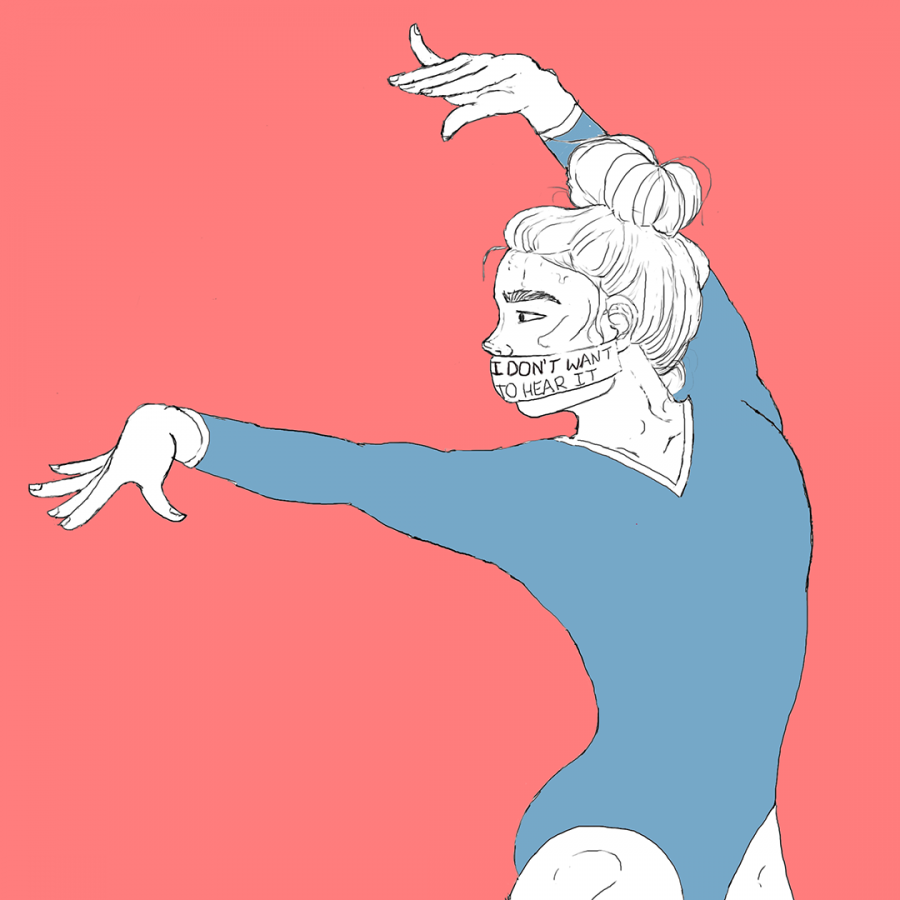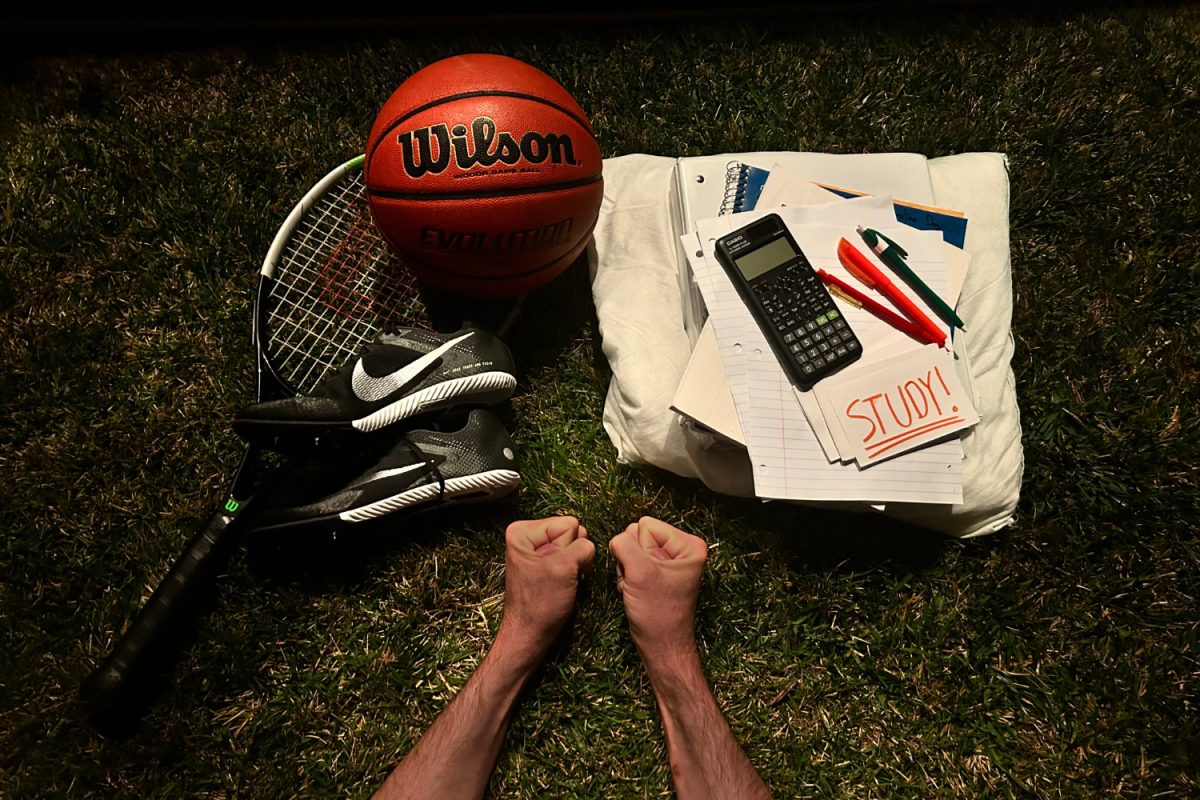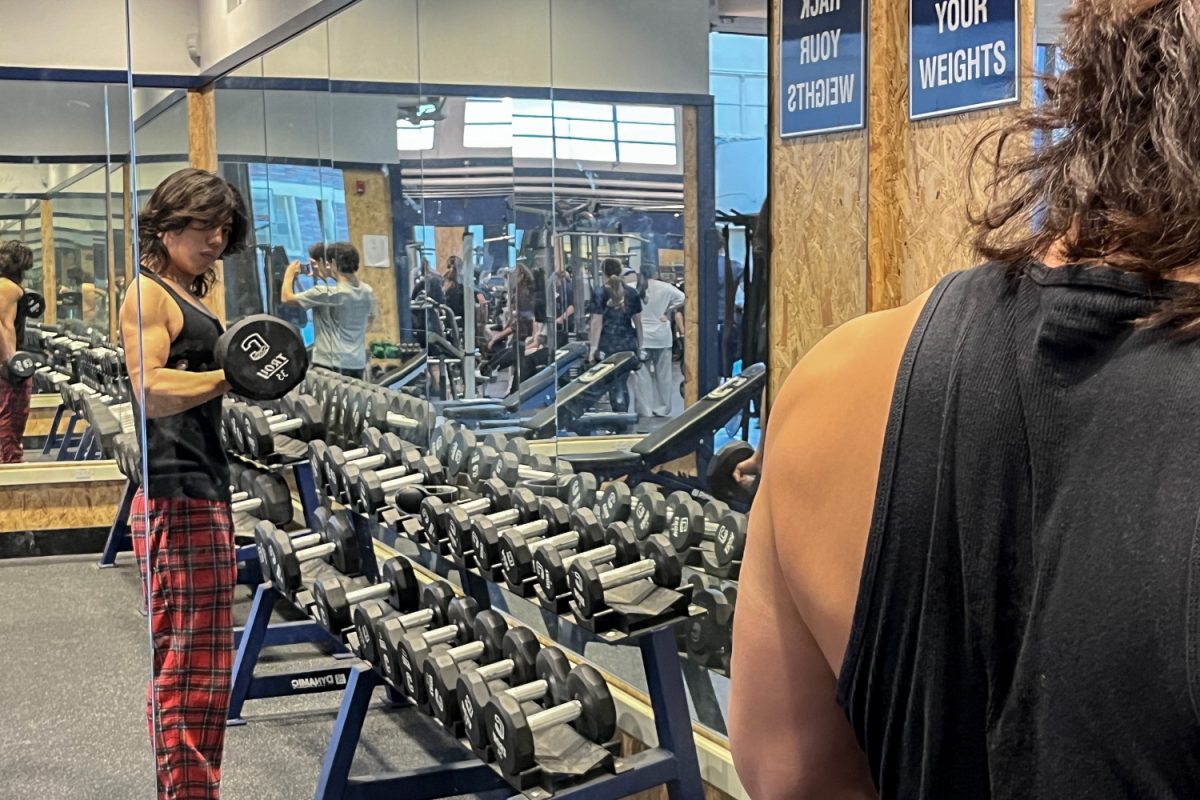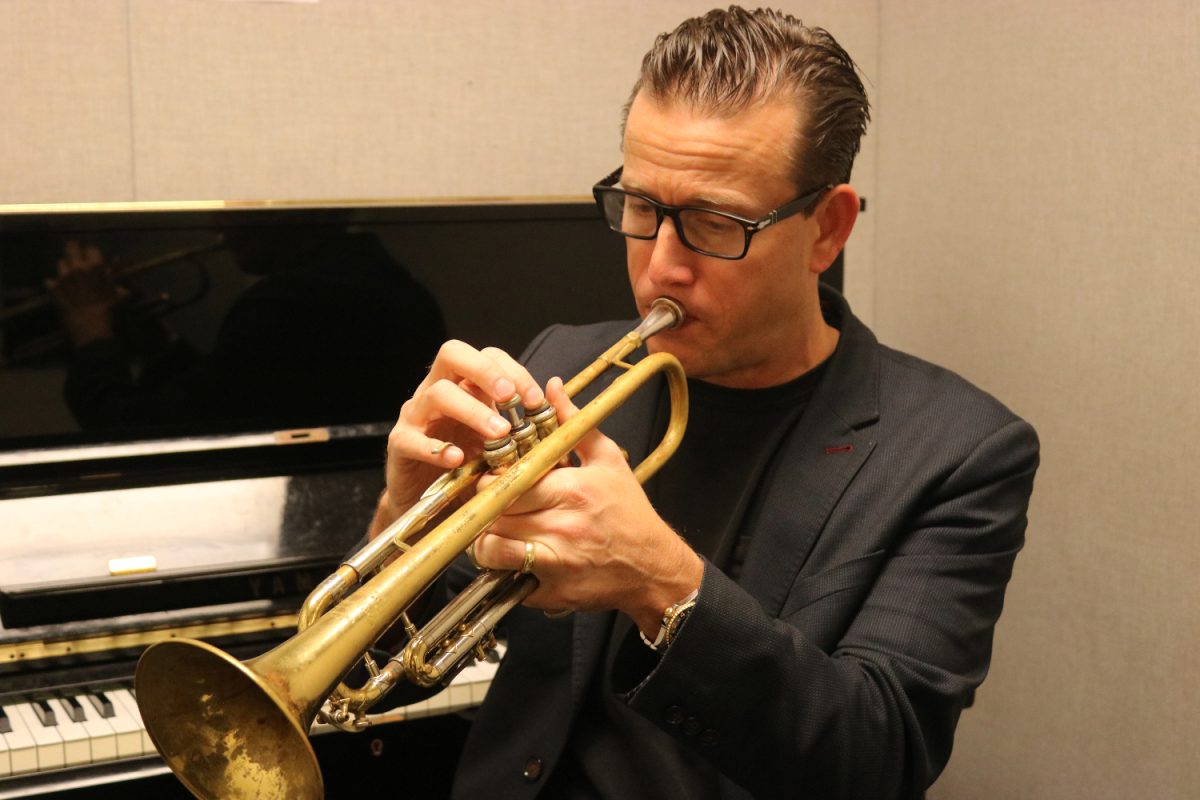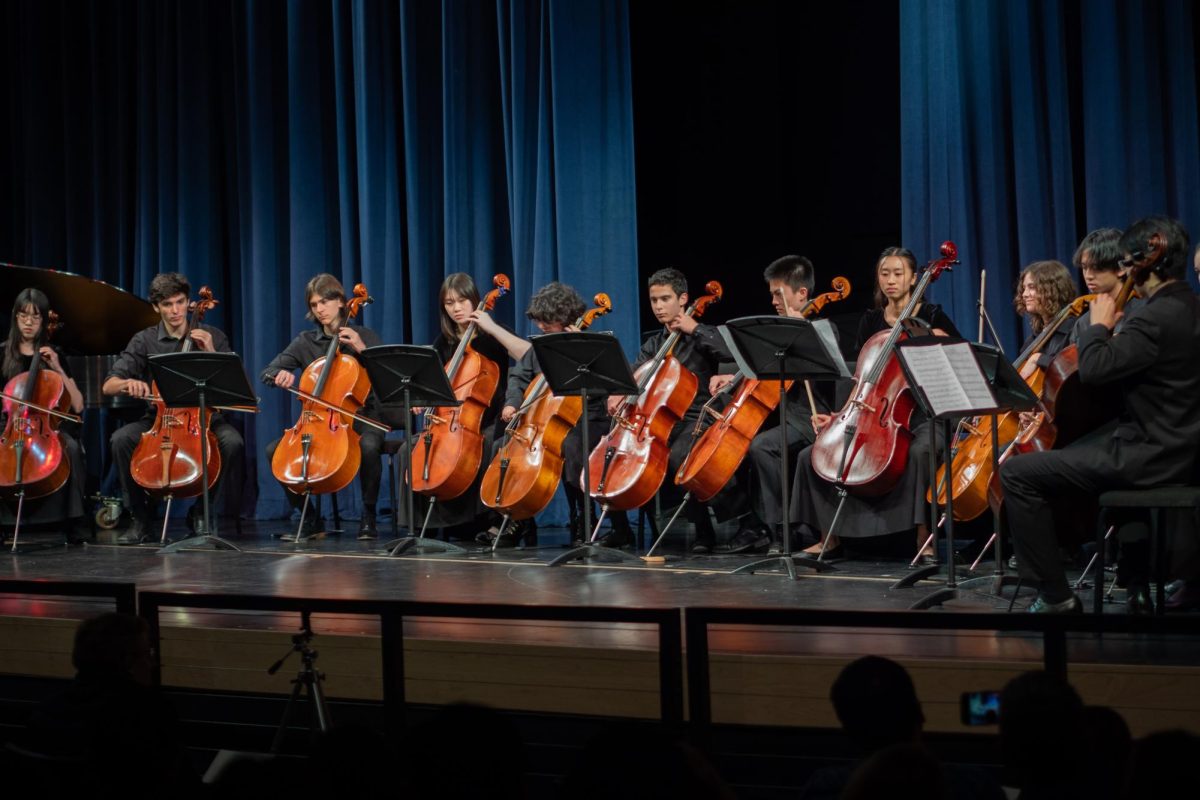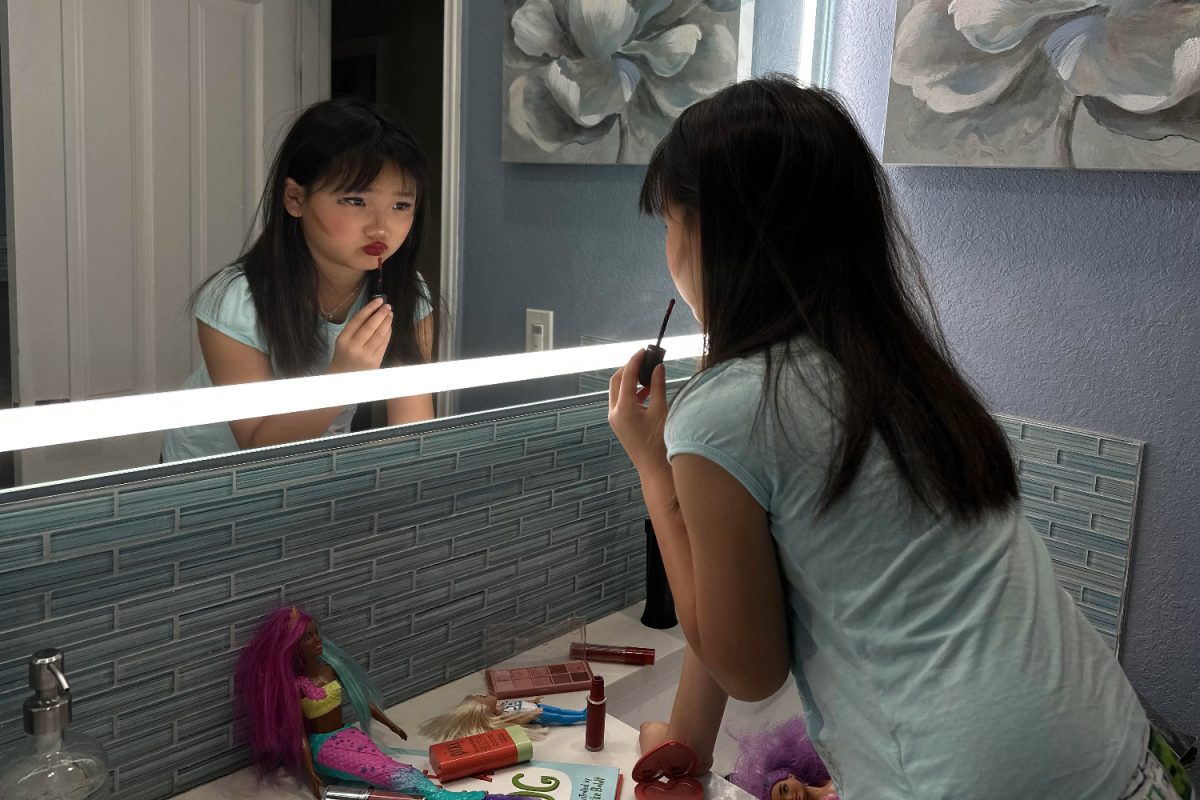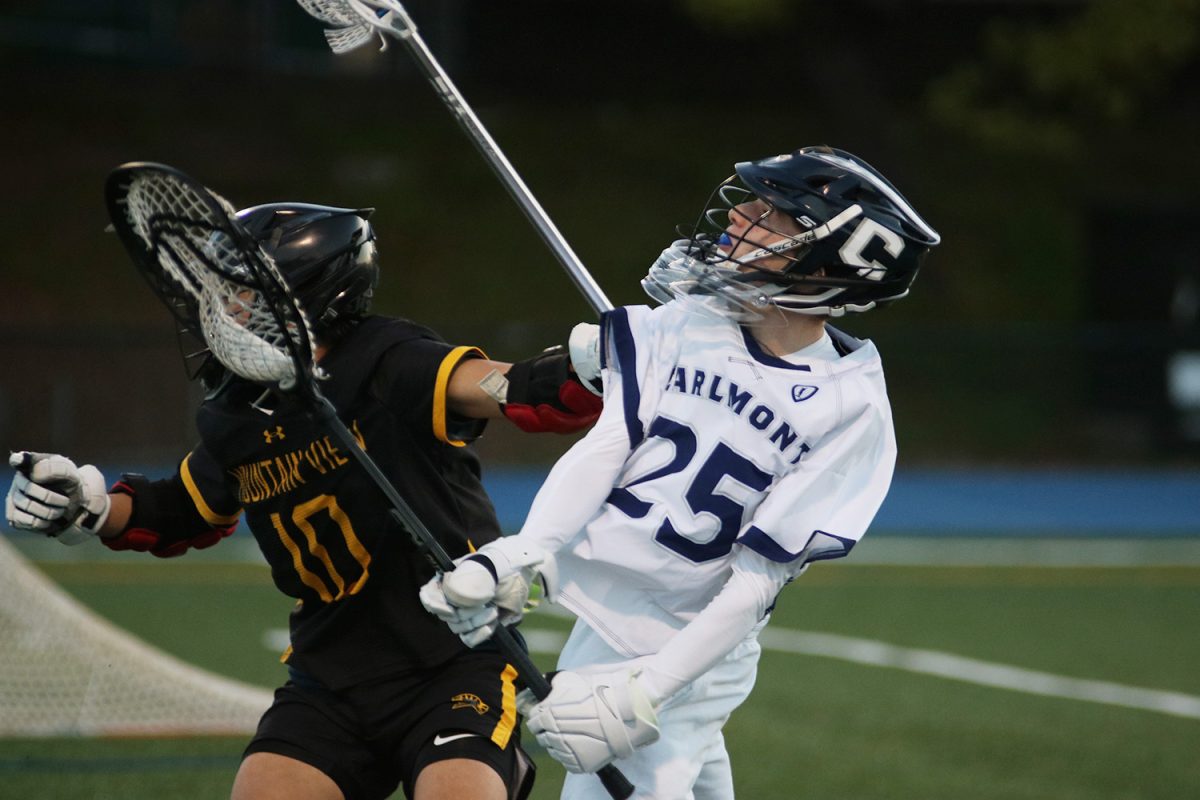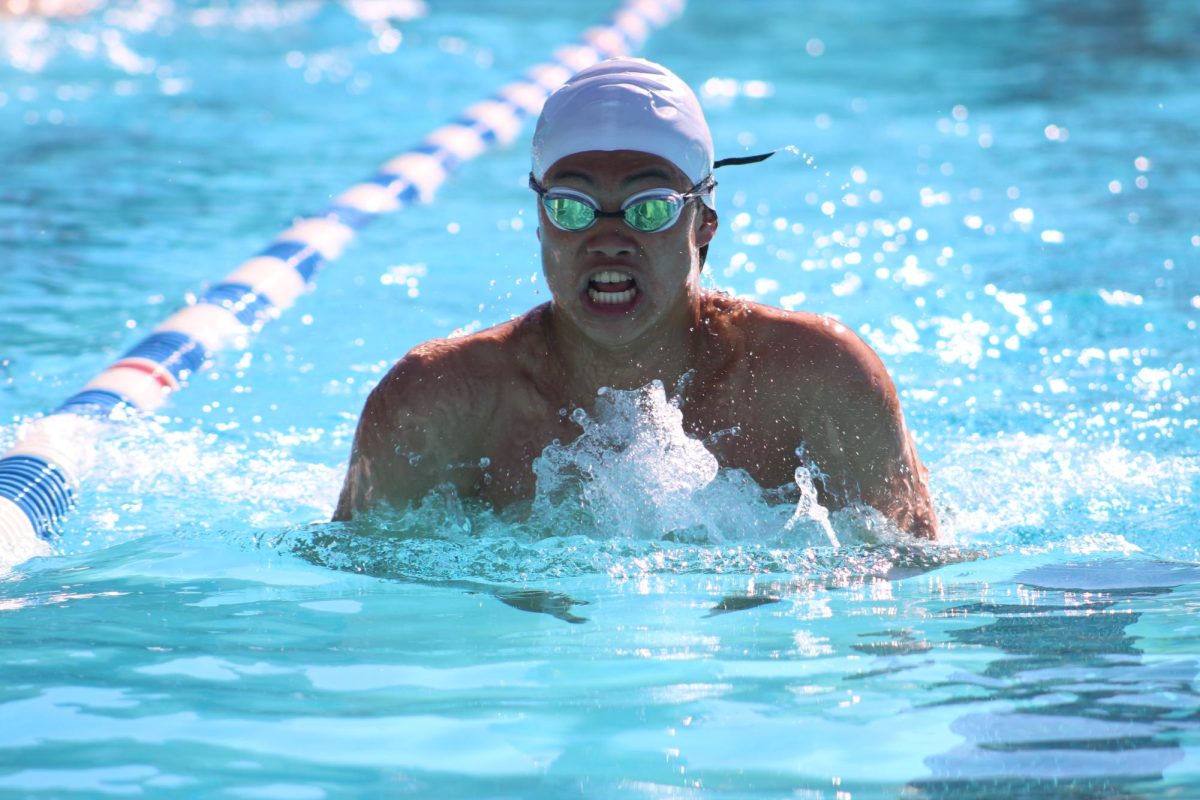She didn’t get to have a normal teenage life.
Beyond the gym, where she trained six days a week for 24 hours, she didn’t have any close friends. How could she when gymnastics came before everything else?
She watched little girls accept comments like “you can’t do that because you have too much weight” and “you look like a gummy bear because you are so squishy” the same way she grew to tolerate degrading criticism and back-breaking conditioning from her coach every day.
Few parents bat an eye when they hear the coach’s howls resonate across the entire gym. But in reality, that coach determines their child's futures.
“It’s part of the process,” they have to tell themselves. However, this “process” riddled gymnast Clarissa Zheng* with anxiety, overworked her to a point of unimaginable mental and physical stress, and left her with lifelong injuries.
When high-school athletes like Zheng get to an elite level, they enter a whole new playing field. Expectations are higher, margins for error are lower, and in gymnastics, little girls are willing to bear any form of emotional abuse for a shot at success.
Athletes are pushed to their limits by abusive authority figures and are pressured to sacrifice everything for greatness. So then, how do elite athletes go from being on the right path for their futures to enduring something so traumatic that they stop pusuing their life-long dreams?
Looking to the future
Zheng wasn’t one of those gymnasts who have been competing since they were four years old. Cartwheels and monkey-bars were all she knew in kindergarten until a mini-gymnastics program kindled her love for the sport. It wasn’t until she turned nine that she got the opportunity to go to a gymnastics club in San Mateo, where the coaches saw her natural talent.
“After about a month, the coaches saw that I was really good and that I should start training to be a part of the team,” Zheng said.
For the next four years, she competed with her teammates. They became her closest friends, and her gym became her home away from home. Even though she had a lot to learn, the encouragement from her coaches and the environment put Zheng on the right path.
She had a stable relationship with gymnastics, but after competing at level seven, the head coaches, her teammates, and Zheng all went in different directions. She was devastated.
“I thought that was the hardest thing I would ever go through,” Zheng said. “I wasn’t that close with my school friends, and I valued my gym friends so much that when I left, it was such a dramatic shift for me.”
The change was difficult at first, but when Zheng moved to her rival gym, she adjusted to the competitive attitude of her superiors.
The stigma surrounding gymnastics regards the assumption that coaches are stern and cruel because they believe their gymnasts are cold machines who must not stray away from pure perfection. But, that notion isn’t exactly true, as coaching culture varies from gym to gym.
Her first coach was one of the good ones. Being a father himself, he understood Zheng and the other gymnasts; she looked up to him.
Going into level eight with better coaches, she started to make more progress. She ended up being really happy with her new teammates too.
“I got very close with them, especially since as I matured, they also matured. We went through a lot of things together and just had really good experiences,” Zheng said.
Even with the disadvantage of starting later than most gymnasts, her parents and coaches recognized Zheng’s quick improvement. Though it was always in the back of her mind, it wasn’t until the start of sophomore year that she decided to think seriously about college gymnastics. She began going to a gymnastics guidance counselor, college camps, and soon enough, she was deemed a college hopeful.
However, things didn’t stay that way for long. When a new coach joined the gym, Zheng observed the way she aggressively yelled at her gymnasts, and she knew she could never work with someone like that. Her favorite coach moved away, leaving her in a new group with a new coach.
And that’s when everything started to go downhill.
I don't wan't to hear it
In the sport, it's common for gymnasts to be shamed when they aren't already perfect on their own.
"For me personally, I was coming into a new level that I was struggling with, and I wasn't sure I'd be able to compete in the next level," Zheng said.
Having a coach with such intensity only made her situation harder, yet Zheng tried to stay optimistic about her biggest nightmare.
"What's the worst that could happen?" she thought.
I was able to progress in some things, but it was out of pure anxiety and stress of meeting her expectations.
— Clarissa Zheng*
She tolerated her coach's remarks at first, but things quickly took a turn. Once she got comfortable coaching a new group of girls, she no longer held back, screaming at the top of her lungs at them. The coach soon began to critique Zheng's questions and actions when she was only trying to vocalize.
If she ever needed help with a skill, all she got was "fix it."
"She would just be on me constantly. She took it as if I was not trying and treated me harder than other gymnasts," Zheng said.
The coach only got meaner when the next season came around, and she decided that Zheng should repeat her current level.
To make matters worse, it was frowned upon to bring up an injury to a coach. Zheng was already competing on a sensitive back from fracturing it when she first joined the gym and nearly fractured it again when she developed a herniated disk. Her coach reasoned that since there was no fracture, she could still do everything at her best.
“It still hasn't healed to this day and really, it’s because of her. She doesn't let gymnasts heal, and she self-diagnoses their injuries,” Zheng said.
Coaches like her “don’t want to hear it.” They create an idea that it’s not good to speak up when something is wrong, and that was only the beginning of how Zheng's career fell apart.
The breaking point
The way she was treated began to affect her school and home life. Zheng started having bad practices because of the anxiety her coach caused her. Some days, she felt like she was just going through the motions.
“I was always really happy before, but after that, she changed me a lot,” Zheng said.
She would basically treat me as if I was a dog, and it switched something in me that made me just not want to do gymnastics anymore.
— Clarissa Zheng*
Migraines kept her up at night, and sometimes she pulled all-nighters to manage her school work with her practice hours.
The thought of going to practice gave her a stomach ache, and while Zheng was there, she was forced to do conditioning that her physical therapist advised her not to do. Afraid of talking back, she pushed through the pain and now has to deal with the aftermath of her injuries.
“It ruined my feet completely. I got shin splints, bunions, and so many other foot problems that I never had before because of the conditioning that she gave me,” Zheng said.
Communication between her coach and her teammates was almost non-existent. If any gymnast thought to bring up an injury, they risked getting told they couldn’t come into the gym or train again.
Zheng began to doubt doing gymnastics in college, especially when she was told that her hard work will never get her anywhere. After being constantly worn out, she reached a breaking point; she no longer wanted to do gymnastics.
A view from the outside
People only see one performance gymnasts spend over a year working on, which leaves the majority of their training in the shadows. This makes it easy for over-training to become acceptable, and a single injury can set back their entire career.
“They end up feeling behind, and they feel ashamed of that,” Dr. Alyssa Herrera-Set said.
Herrera-Set is the founder of On the Move physical therapy, and gymnasts make up the majority of her patient list. She often treats gymnasts who feel uncomfortable confronting their coaches about their problems and are subject to the constant pressure to succeed.
“They need to feel safe and supported by coaches and teammates, and there needs to be two-way communication. The athlete needs to feel like they are doing it for themselves … for their own joy,” Herrera-Set said.
Parents want their kids to be successful, but sometimes their eagerness can add unwanted pressure for athletes. In high school, there’s not a lot a parent can do other than be their child’s biggest fan and give them the tools they need to feel supported.
“Their parents need to listen early on, and they need to address the problem or give a break instead of letting early signs pass by,” Herrera-Set said.
Some athletes take an unfortunate turn when they over-work for a goal they no longer feel passionate about but are unwilling to give up, as they feel it is the only thing they know how to do.
“When somebody gets over-trained, it gives them a moment of pause to think if they still love the sport, and then they can do what they need to do to move on,” Herrera-Set said. “The problem is when they are getting [over-trained] in a bad environment.”
Orange and White Opening up a Restaurant Infographics by Nadia Fedotova
Beyond the edge
Coming to terms with her decision wasn’t just difficult for Zheng, but for her parents too. A lot of work went into preparing Zheng for college gymnastics, but because of her coach's treatment, they understood where she was coming from.
She gave everything to a sport that didn’t give back.
Gymnasts might want to be pushed hard, but it depends on how far you go because there’s crossing a line between pushing gymnasts hard and pushing them over the edge.
— Clarissa Zheng*
Every sacrifice made was an injury in return.
Every hope of a better day was diminished by cruel words.
Her future, talent, and state of mind were handed over to someone that could care less about the consequences of working gymnasts after they were already broken.
Athletes like Zheng who invest their lives in a sport are first deemed hopeful, then later merely disposable, when they are pushed too far. Yet, nobody is held accountable.
A change in the way some athletes are abusively coached is long overdue. Parents, coaches, and athletes need to combat the silence disguising red flags. People who see mistreatment need to come together and speak up because once coaches like that of Zheng are put in the wrong, there is no escaping what they don’t want to hear.
*Due to the sensitive nature of the content, this name has been changed to protect the anonymity of the source.


